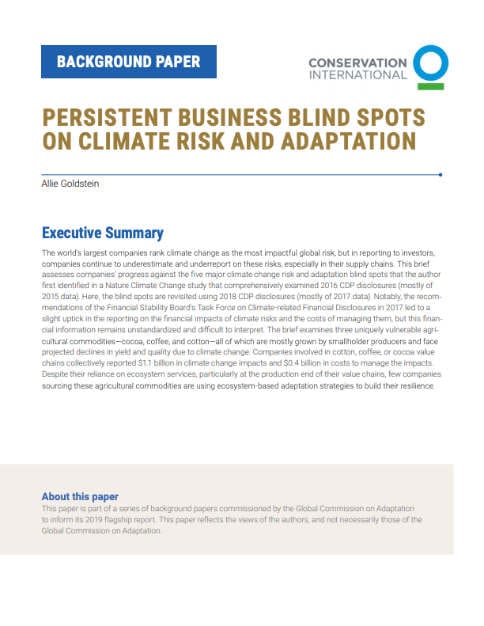
The world’s largest companies rank climate change as the most impactful global risk, but in reporting to investors, companies continue to underestimate and underreport on these risks, especially in their supply chains. This brief assesses companies’ progress against the five major climate change risk and adaptation blind spots that the author first identified in a Nature Climate Change study that comprehensively examined 2016 CDP disclosures (mostly of 2015 data). Here, the blind spots are revisited using 2018 CDP disclosures (mostly of 2017 data). Notably, the recommendations of the Financial Stability Board’s Task Force on Climate-related Financial Disclosures in 2017 led to a slight uptick in the reporting on the financial impacts of climate risks and the costs of managing them, but this financial information remains unstandardized and difficult to interpret. The brief examines three uniquely vulnerable agricultural commodities—cocoa, coffee, and cotton—all of which are mostly grown by smallholder producers and face projected declines in yield and quality due to climate change. Companies involved in cotton, coffee, or cocoa value chains collectively reported $1.1 billion in climate change impacts and $0.4 billion in costs to manage the impacts. Despite their reliance on ecosystem services, particularly at the production end of their value chains, few companies sourcing these agricultural commodities are using ecosystem-based adaptation strategies to build their resilience.
GCA reports may be republished in accordance with the Creative Commons Attribution-NonCommercial-
NoDerivatives 4.0 International Public License, and in accordance with our Terms of Use.